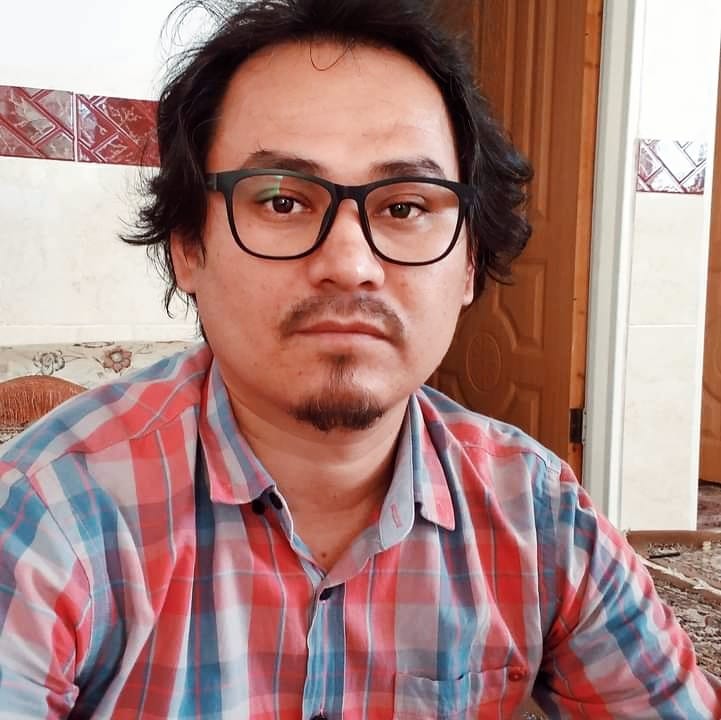 Interview with Ruhollah Phoenix, PhD
Interview with Ruhollah Phoenix, PhD
What is the root of enmity with knowledge and why are scientific and cultural centers being targeted by terrorist attacks in Afghanistan?
Ruhollah Phoenix: You see, if we say that the enemy with knowledge is rooted in ignorance, we have solved the issue correctly but very naively. The problem is never that one is instinctively the enemy of knowledge, and no example of such an essence can be found in history. It has always been the case that someone with a particular identity is hostile to the knowledge of someone with a certain identity. Examples of this kind of hostility to knowledge can be found in the library fires of Alexandria and Antioch by pre-Islamic Muslims and Iranians, the book fires during the Islamic conquests, the Nazi book fires against the Jews. For example, someone like Ahmad Kasravi in contemporary Iran burned the books of mysticism and Sufism, because these sources may take the ground for growth and development. A large consignment of books including “Hazaras” by Hassan Pouladi, “Afghan Identity Card” by the late Dolatabadi, a red rose by Javad Khawari and some Shiite hadith sources such as Nahj al-Balaghah and Usul Kafi were thrown into the Helmand Sea in 2009 in Nimroz province. In addition, there have been many scholars in history who have been imprisoned, killed, exiled, and at least tried to prevent their intellectual and scientific activities. All of these are examples of hostility to knowledge and thinking and wisdom. But these were not absolute, they are barbaric forms of enmity of one person or ethnic group with a certain identity with another ethnic group. Undoubtedly, beyond these boundless hostilities, there is a kind of identity-seeking or identity-building. In contemporary Afghanistan, the enmity with books and knowledge is rooted in the first place in a kind of identity barbarism. In the second step, through the above examples, we find that it is not absolute ignorance but relative ignorance that suppresses the will to know in someone. In other words, if we look at the theorem in its logical and free nature, ignorance is a definite form and a limited order of knowledge, which rises into hostility with its freer and wider form. Thus, and absolutely, it is always the collectivist form of knowledge that opposes the other collectivist form or its more free and enlightened kind of kinetics. This is to the extent that we look at it from the perspective of the confrontation of ignorance and wisdom, but in terrorist and brutal acts against the training centers of power relations, there are historical relations and, most importantly, internal relations that we must take into account. What I mean by the latter is that the very act of being defenseless, and more precisely, of defending ourselves and being in such a situation, or of taking some kind of neutral historical-political gesture, exposes us to catastrophe.
Fundamentalist and terrorist groups such as the Taliban and ISIS, which operate in Afghanistan, have been attacking educational institutions for several years now. Why is fundamentalism at odds with science?
Phoenix Ruhollah: Fundamentalism is not absolute ignorance, it is a limited and rigid form of knowledge that deals with the freer and more alien form of knowledge. Note that this is the most dangerous type of enmity with wisdom. We must fundamentally consider that every field and realm of knowledge may assimilate its actual form, just as any political structure and certain framework of a historical being may assimilate itself and even resort to historical materials to perpetuate and perpetuate itself. At least, it uses all its capabilities to maintain its existence. Taking refuge in any formative form of historical life is exactly what we see in fundamentalism and ideology, and it has eroded even philosophy and thought today. In any case, if we subtract from racialism the current racial, social, and economic aspects, that is, the historical conditions of its development, fundamentalism in the Islamic world, in a sense, takes its origins from the historical conditions of early Islam, and of course along a definite and limited reading of Texts also help. But this interpretation is completely wrong in understanding fundamentalism. You can not find fundamentalism in the general and pure sense, and if you do find it, it is not the source of the effect. In other words, all Muslims have in common most of the issues in the principle of returning and establishing a source that is considered non-historical. From this perspective, all Muslims are fundamentalists. Fundamentalism, then, must always be understood as bound by its linguistic, racial, and religious constraints. It is either Shiite fundamentalism, or Sunni fundamentalism, or it is either Arabic, or Iranian, or Afghan and Pakistani. Therefore, if we consider fundamentalism as a kind of essence, we must pay more attention to the historical conditions of its occurrence and development. Therefore, fundamentalism is a historical complication, like countless other complications, and it is limited and conditional. The essentialist understanding of phenomena is extremely limited. We can achieve a more realistic understanding of a phenomenon when we make as clear and conscious as possible of as many aspects and proportions as possible. We do not know for sure, but when we ask about a phenomenon, our understanding of it becomes wider and closer. The essence of fundamentalism is not what is called the foundation, it is the relations and conditions of its development that are its main essence and stimulus. Even if the non-historical spirit and essence are highlighted in it, let us note that this spirit finds meaning and is subject to the domination of circumstances. With these considerations, ISIL and the Taliban have no religious basis, it is an excuse that can deceive the republic, but it is a political and ethnic current.
In the last twenty years, the gates of schools and universities were not only open to the Hazaras, but also provided education for all citizens of the country, but why are only the Hazara educational centers being targeted? To make it clearer, in addition to the terrorist attacks on Hazara training centers, the government also quotaed the entrance exam last year. What is the root of this? Does it want to stop the scientific progress of the Hazaras?
Ruhollah Phoenix: Before the forties and fifties, Hazaras were banned from entering higher education institutions, after which the presence of Hazaras was extremely limited until the emergence of the Taliban mafia and terrorist group and the beginning of a new era. But since the Bonn Summit and the beginning of the interim government, which was closely linked to the destruction of the Taliban and the US occupation, educational centers have been going back to the millennia. Note that the Hazaras, after a century of oppressive ban in which more or less modern educational institutions were formed in the country, rush to the educational centers and, more importantly, to build schools and colleges widely throughout the millennium. They do, they develop transportation routes and …
The Hazaras, in a sense, find it necessary to start all over again and focus on their reconstruction and revival; It is as if the millennials are starting all over again. Why do I say start again from scratch and rebuild oneself, because the millennia after Islam are gradually becoming the subject of oppression and deprivation, especially in recent centuries. On a larger scale, the Balkh-Bami culture and civilization of the Hazaras, both before and after Islam, are attacked twenty-two times by vast empires and the invasion of desert and landless immigrants, being exterminated and exterminated from their homeland. And the ends of the world are displaced. It is not without reason that Hazara thinkers such as Farabi, Ibn Sina, Nasser Khosrow and Biruni and others have been writing and thinking in constant displacement, and even in the contemporary period, the greatest Hazara scholars and jurists from the late Khorasani cleric to Ayatollah Fayyaz later migrated to Bashar. They will not be able to return to their homeland, that is, they will not be able to take part in their reconstruction and revival, not from afar. These are the pains we are going through. On the other hand, in the new era under Abdul Rahman’s rule, they are once again completely rejected and genocidal, and this process continues to this day. Thus, we encounter the Hazaras as an ethnic group in history, all of which are ravaged by storms of genocide, prohibition, and displacement. So it is true to say that the Hazaras want to rebuild and revitalize themselves once again in the form of a revolution and an event; However, we are still far from the full and conscious movement of such a process. We must understand that fundamental movement is possible only with the beginning of the self. Yes, it is true that after several years of controversy, they finally rationed the entrance exam to limit the presence of Hazaras, started massacring Hazaras in homes, sports and educational centers, and even did not show mercy to Hazara fetuses and babies. That is, the government wants to stop the growth and development of the Hazaras, either directly through the entrance exam quotas or indirectly, ie by abandoning them as pastures for terrorist groups such as ISIS and the Taliban. We and every spectrum of us must always say to ourselves that in the millennium you are the subject of the oppression of several nations and powers, a history full of your pain is completely different from the history of others, just as your present and future are completely different. The millennium must always tell itself that you can not study foolishly and foolishly and research naively, you can not think simple, you can not think in the interests of personalities in politics and thus betray the millennium.
When, on the day after the genocide at Sayyid al-Shuhada High School, the nuns re-enter the same school where 95 of their friends were suddenly torn to pieces and covered in dust and blood before their eyes, it means that the will to know for millennia is the beginning of modern history. The heavy responsibility that falls on all of us comes from these places and from the unbreakable will of these same children, from the same phoenix who rise from the fire of blood. The millennium in general has no right to play games in history.
However, in Afghanistan, it is not only fundamentalism that hinders the consciousness of the Hazaras, but also the ethnic issue. Why is the ruling people in power afraid of the knowledge of the Hazaras?
Ruhollah Phoenix: I think no one and no power can stop anyone’s knowledge, that is, this action will ultimately fail. So we should not despair and hopefully continue the path we have begun. But the ruling people, in your interpretation, think of monopoly on the one hand and exclusion on the other. The post-Bonn period was seen by the Pashtuns as an opportunity to rebuild authoritarianism and ethnic dictatorship, while the Tajiks, who shared power, thought only of themselves and therefore could not form new foundations. Now they are looking for the same thing in the peace talks. We must not forget that at the heart of peace negotiations lies the reconstruction and development of ethnic hegemony. It is along the lines of authoritarianism that both ruling spectrums fear the wisdom of the Hazaras. This fear means that it is political wisdom. That is, the education of a millennial child has a political-historical meaning. Unfortunately, the Pashtuns have recently been brutally trying to block the progress of the Hazaras in every possible way, even through genocide, in full-scale collaboration with ISIS and the Taliban. Before Dr. Ashraf Ghani came to power, schools and insecurity were rampant in the south of the country. Instead of curbing the outpouring of this devastation, he and the ruling team expanded it to other parts of the country, just as it spread insecurity from the south. Published in other parts of the country. These plots tell us that the work of the Pashtuns is to promote war, to spread insecurity, to increase war crimes, to commit human rights crimes, and to undermine democracy and political participation. Therefore, we must pay deep attention to the fact that Pashtun is the name of the political crisis in the history of the country. Pashtun is the signature of the catastrophe; The foot of all contemporary catastrophes is the Pashtun signature. Why and how does the Pashtun become ISIS, seek it out, commit suicide, travel it, launch settlements and kill children, and so on ?! Pashtuns must reach this self-awareness through humanity and civilization and ask themselves why they are the signature of the catastrophe and the real name of the crisis?
Can knowledge gain political power in the future?
Ruhollah Phoenix: As I said, it is political-historical knowledge, but it does not have only a political horizon to lead to political power at the same time. Knowledge is inherently a kind of conscious affliction with human existence and the establishment of a relation to the world on the basis of an autonomous intellect, because it is in knowledge that man’s relation to the world as a whole is determined. It is basically in knowledge and wisdom that man finds the opportunity to meet all the relations of his existence and to establish himself in history. But if we are talking about politics and not necessarily political power, then knowledge is undoubtedly one of its most important principles. Foucault developed an understanding of the nature of power and made it clear that power is multifaceted and scattered throughout society, including individuals and social classes. Power does not just come together, but it has strengths and weaknesses. Of course, this view is not only true of power, knowledge is also of such a nature and nature as power, it is inalienable, but it has spread skeptically throughout human society, but it may also be weakened to zero degrees. That they have the power and knowledge of a multiplicity and diffuse existence is because they are inherently proportional, and this unsociable and dubious buoyancy stems from the inherent logic of proportion. The modernization and multiplication of proportions is precisely the future itself, the future means the modernization and multiplication of proportions; But in this modernity, knowledge and wisdom play a major role, because knowledge is the point of assembly of proportions. Knowledge and wisdom do not mean having a set of teachings and thoughts, knowledge means being open to establishing new relationships with oneself, history and the world. In wisdom, we can change the landscape of politics, create different possibilities, and modernize our historical way of life.
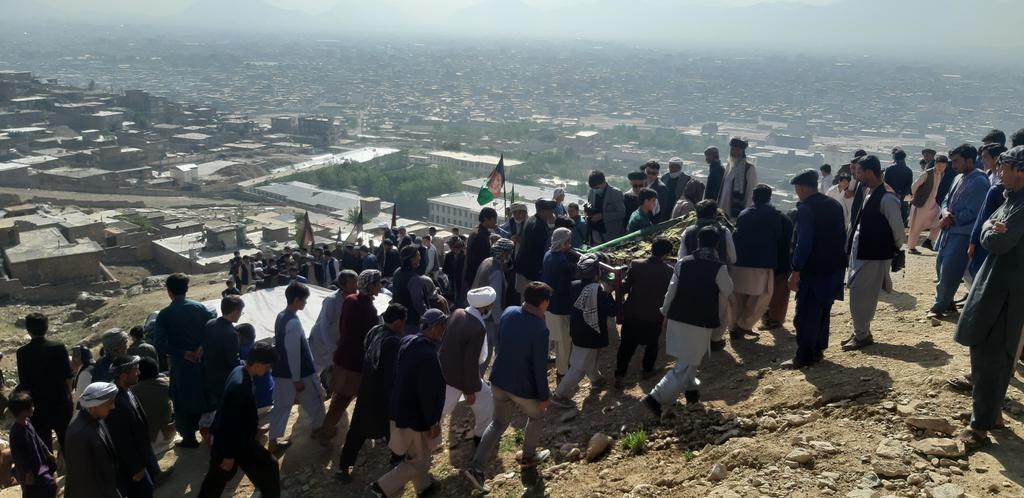 If we go back to historical examples, it is said that the Jews have a common destiny with the Hazaras. Both have been massacred and massacred. What was the strategy for the survival of the Jews after the massacre? If your answer is that the Jews turned to science and culture, what difficulties did they face along the way? How much do they achieve? Were they able to secure their survival and gain political power through knowledge and awareness?
If we go back to historical examples, it is said that the Jews have a common destiny with the Hazaras. Both have been massacred and massacred. What was the strategy for the survival of the Jews after the massacre? If your answer is that the Jews turned to science and culture, what difficulties did they face along the way? How much do they achieve? Were they able to secure their survival and gain political power through knowledge and awareness?
Ruhollah Phoenix: Well, to some extent we can say that our past was like that of the Jews, because they too were massacred by the Nazi regime and Hitler’s fascism, a clear example of which is the Holocaust and Auschwitz. Because European reason is in a sense an archival or historical reason, the Jews were able to document their genocide and engrave it in the collective memory of contemporary European culture and history. So the Holocaust and Auschwitz became the subject of thought rather than the subject matter of the lesson, and therefore the realm of art and thought and philosophy. Films such as The Pianist and Schindler’s List are the most prominent examples of Jewish genocide. The most prominent thinkers of the twentieth century and those who are still alive, such as Badiou, Agamben, and iکek, have thought about or been criticized for this, such as Heidegger, who is critically criticized by Adorno, and even today in Germany by Heidegger. Is named. In general, the Jews took important political, economic, technological, and cultural measures and were able to pull themselves out of the mire of the bloodiest conditions. The fruit of the Jewish effort was the establishment of a state and a state called Israel. I say that in part because the millennials are in a way worse off than the Jews. According to the narration of Faiz Mohammad, the Hazara writer in Siraj al-Tawarikh, crimes against the Hazaras have taken place that are unprecedented in human history and do not fit into human imagination. Imagine what the scribe is reporting is something that is out of control and out of the sight of the ruler, so we have only seen the profile of the event, and we can only imagine the other half of the millennial oppression and savagery of Abdul Rahman’s time. The genocide of the Hazaras, on the other hand, not only did not afflict any conscience and was not recognized, it still continues. Acknowledging this genocide is the secret of humanity. It means that the tragedy continues as long as the people of Afghanistan and the ruling power do not officially recognize these genocides, apologize to the oppressed people in the presence of history and do not take responsibility for their civil, legal and historical means. Nevertheless, the Jews repented of European society and accepted it sincerely. Before we learn from the Jews or any oppressed people in the world, we must learn from our present history and situation and take action. In any case, the Hazaras need to establish an internal government or a party in the form of a government. As I said, millennials really do not have the right to play games in history, because they do not have the opportunity.
The Jews studied and learned science, and by using culture, they also highlighted their massacres and massacres and produced texts of tragedy. How can we archive?
Ruhollah Phoenix: We have a prominent model of historiography in this contemporary period. We must understand the scribe as a subject who, in every possible situation, tries to record the details of human life and existence in the time and place of its realization. By establishing him, we must have the historian of each period, and the historian who lives in the heart of events is responsible. Moreover, the establishment of an archival center, for example, called History, is absolutely necessary. In the last two decades, we have been infinitely neutral and helpless in the face of all the tragedies that are happening to us. We are slaughtered everywhere, but we can do nothing. The last thing we can do is relax in a sorrowful gesture and immerse ourselves in a cathartic spirit, which is also an acknowledgment of absolute helplessness. Now all we have to do, and we can do it with the help of the people themselves, is to at least be able to save the remnants of the catastrophes, photos and videos of eyewitnesses and record them in a safe center. Disaster is disaster; But forgetting it is also a disaster. Ignoring this is one of our most painful mistakes. You see, the current government is either directly involved in creating the catastrophe, or it is fully aware of the perpetrators and how a suicide operation took place. But people have never been told the truth and will never be told the truth. Government fact-finding teams are essentially the perpetrators of public disguise and deception, such as the Ministry of Counter-Narcotics, for example, to manage drug cultivation and trafficking. So they do not come to tell you and me the truth. We need to take action. Now, even if we are not able to be transparent, at least to save the documents, these documents and the remnants are the witnesses of the catastrophe. Authoritarian power in the country not only creates disaster, it also destroys its remnants and documents as soon as possible. We are also killed and buried in the erasure of these documents.
Is the Frankfurt Letter the product of the thinking of Jewish scholars?
Ruhollah Phoenix: Yes, Adorno, Horkheimer and Benjamin are three of the most prominent thinkers of this critical school and one of its founders. The Jews had prominent scientists and philosophers both before and after Islam. For example, Philo of Alexandria can be considered the first Jewish philosopher who compiled philosophy with Judaism before Plotinus. It’s remarkable, and people like Wittgenstein and Husserl are Jews, and many others that are not counted here. Of course, the Frankfurt School is a philosophical event at the heart of Western metaphysics and cannot be understood as purely political. But what is important is that this thinking was a critical and extremely radical thinking, and its importance goes back to this feature. There has been a historical, political, and social context for such critical thinking for millennia, and one can move toward its formation as a perspective.
Now back to the point, is the millennium scientifically and culturally endangered?
Ruhollah Phoenix: Is science and culture a threat ?! You see, the Hazaras are not a threat to anyone, they do not kill anyone, they do not commit suicide, they do not destroy bridges and roads, they do not burn schools, they do not cultivate opium, they do not plunder public property and so on. The Hazaras are the most civilized nation that has tried to establish the most genuine foundations of democracy in the last two decades, and have worked diligently for political development, national security, development, education, consolidation of democracy, defense of freedom and values, and human rights. Who in modern times remained loyal to the protection of the supreme interests of the country. Nevertheless, his existence is still in danger. Those who consider the Hazaras a threat actually have an evil mentality that does not accept the very existence of the Hazaras. But the Hazaras are not a threat but an enemy to anyone who hinders his progress in all areas and attacks his existence. But this does not mean that millennials do not have serious gaps. Let us point out some political and historical mistakes of the millennia.
First, as I said, the Hazaras have not taken fundamental action to record the historical and thought-provoking remnants of the catastrophes. This means that we cooperate with the perpetrators of forgetting half of the catastrophe. Objects of catastrophe – shot books, bloody shoes, broken and bloody pens, bloody pages, bloody holes, letters and families of victims, etc. – are the explicit language of history, without which complete historical testimony is not complete. When these are gone, we have forgotten at least half of the tragedy. We are all responsible for neglecting to preserve documents.
Secondly, I think one of the fundamental mistakes is that the Hazaras do not understand Islam politically, or avoid it. Let me explain here that Islam is the greatest turning point in the history of religions, whether mythical or book-based; Because this is where religion becomes political for the first time. Judaism and Christianity, just like Eastern religions such as Buddhism and the moral system of Confucius, have a purely moral and non-political nature, and this is the first time in Islam that history and politics have been internalized and placed at its center. Henceforth, even moral teachings and Shari’a take on a political meaning in a sense. The most important confrontation in the Qur’an is the confrontation of disbelief and faith or infidelity and the believer; this confrontation is political before it is theological. This is not the time to fully explain the issue, but in short, in Islam, the formation of a political framework, maintaining one’s sovereignty, economy, security, defending one’s existence, and confronting the enemy are central to religion. A kind of harsh but sterile morality of the Hazaras has made them understand Islam as non-political. Moral and religious mentality affect our place in history. I want to emphasize that the millennium that understands its religion as political will deal with itself and its existence in a different way.
Were the Hazaras, like the Jews, able to highlight their massacres and systematic killings through the culture and knowledge of historical deprivation?
Ruhollah Phoenix: No, unfortunately, as I said, this is one of our worst mistakes. We must be detectives of our own history and not wait for others.
Does Barchi have the capacity to become the Athens and Jerusalem that the ruling people and fundamentalist groups fear?
Ruhollah Phoenix: I have already mentioned that the Hazaras have a great civilization and cultural history. Balkh and Bamyan have been the cradle of our civilization and culture. But we are now the heirs of a ruin, the heirs of a broken and fragmented culture and civilization, the heirs whose entire heritage, including the great thinkers, poets and mystics, and even its geography and letters, has been plundered. I hope that the wounded bridle of this geography of learning to the point of death, this plain dearer than life, will one day resemble Athens, or reconstruct the face of its two thousand five hundred years old and renew itself, and we will see the emergence of great philosophers and poets again.


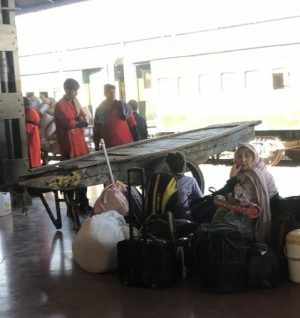
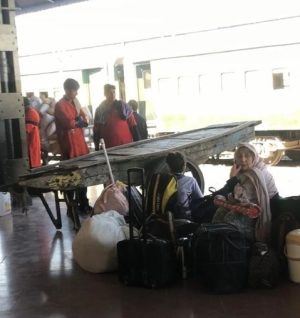


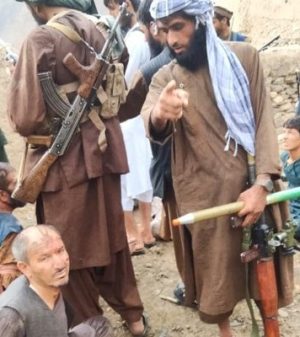
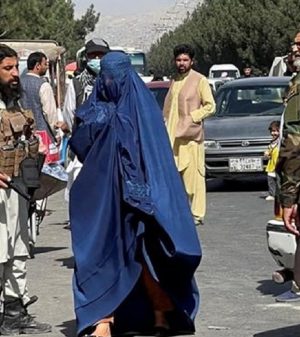
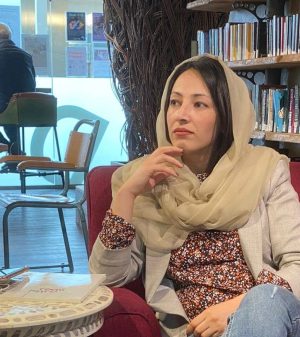
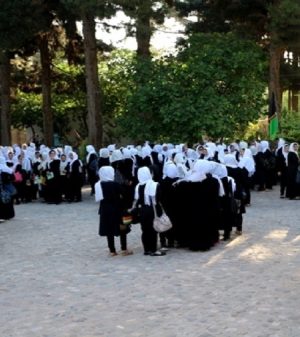
Add Comment